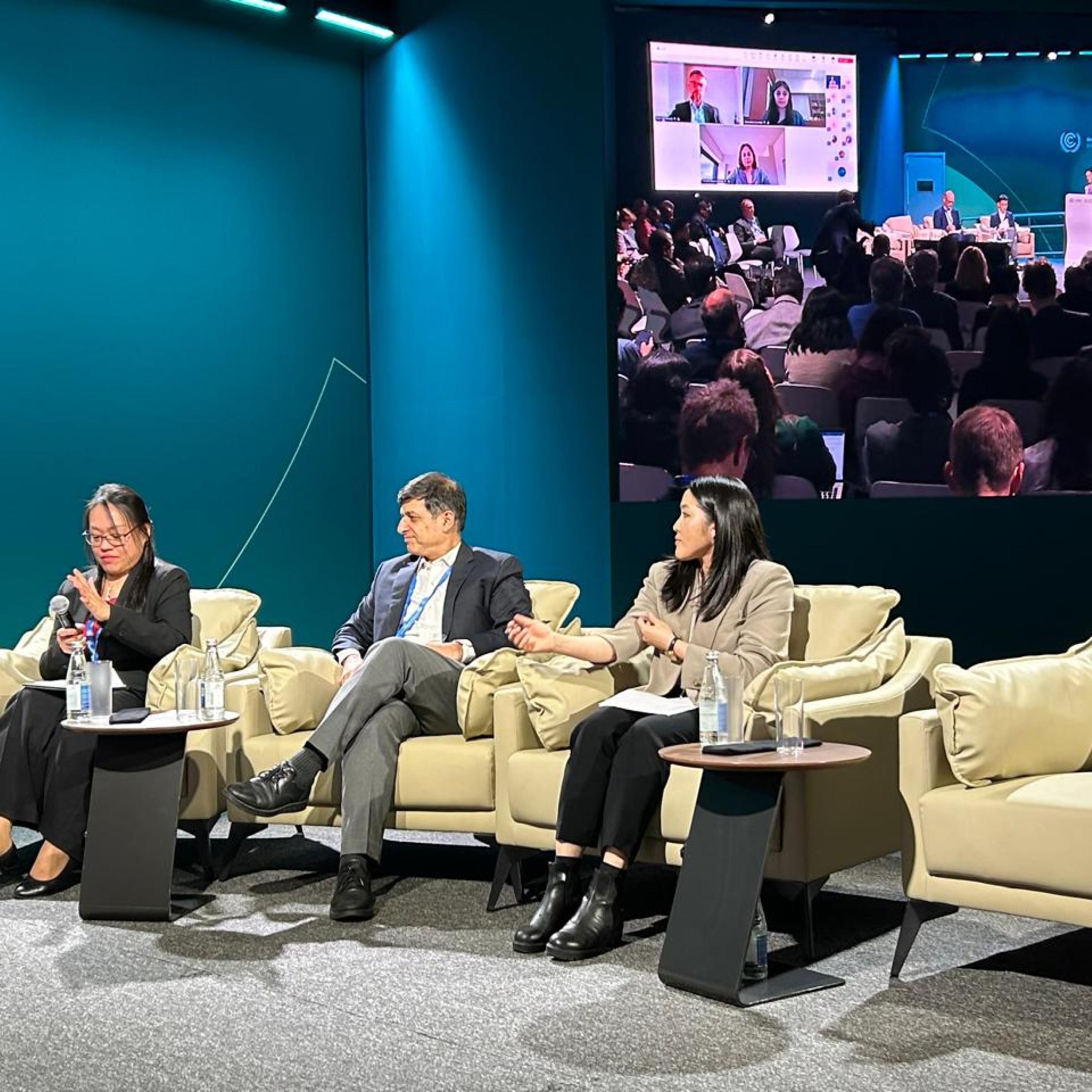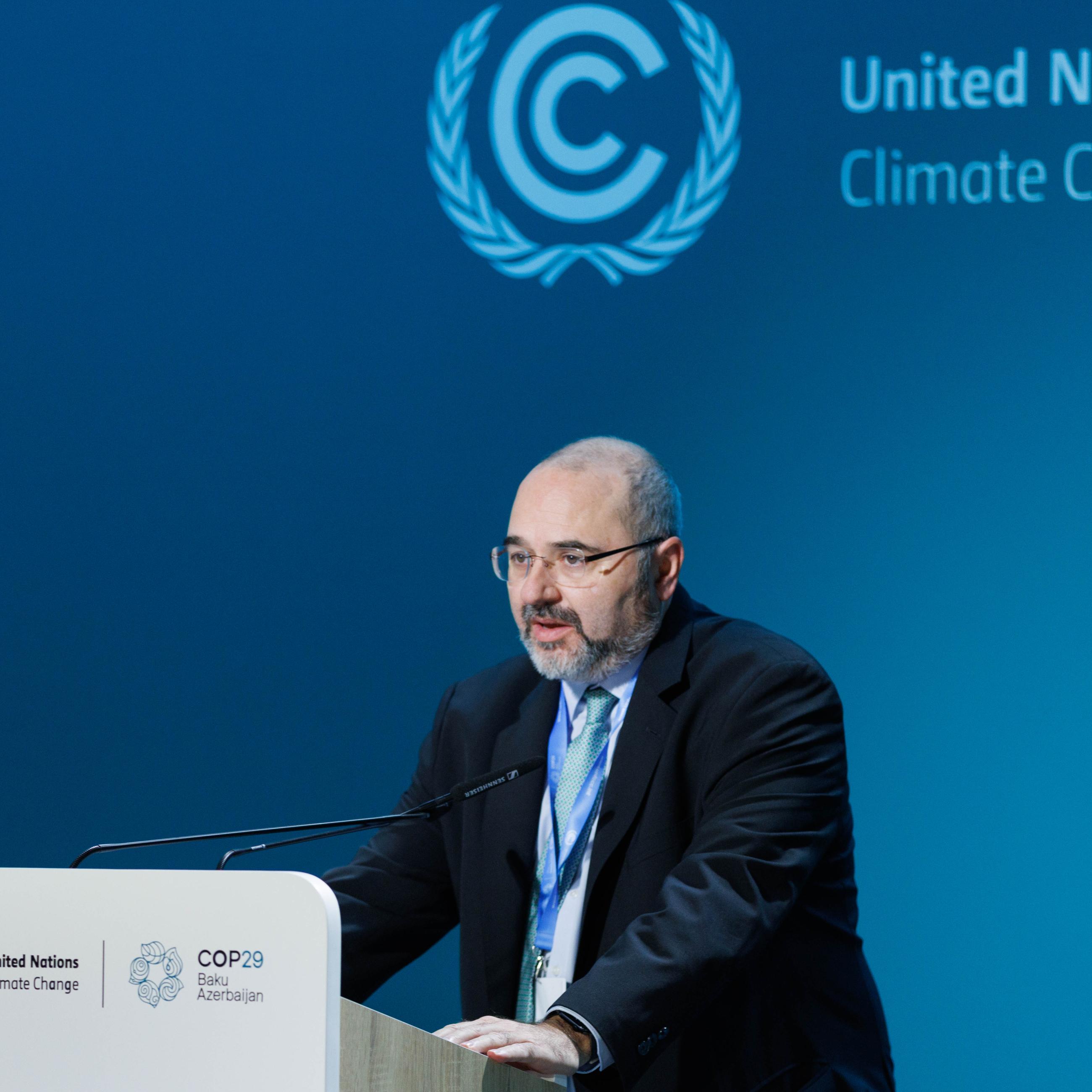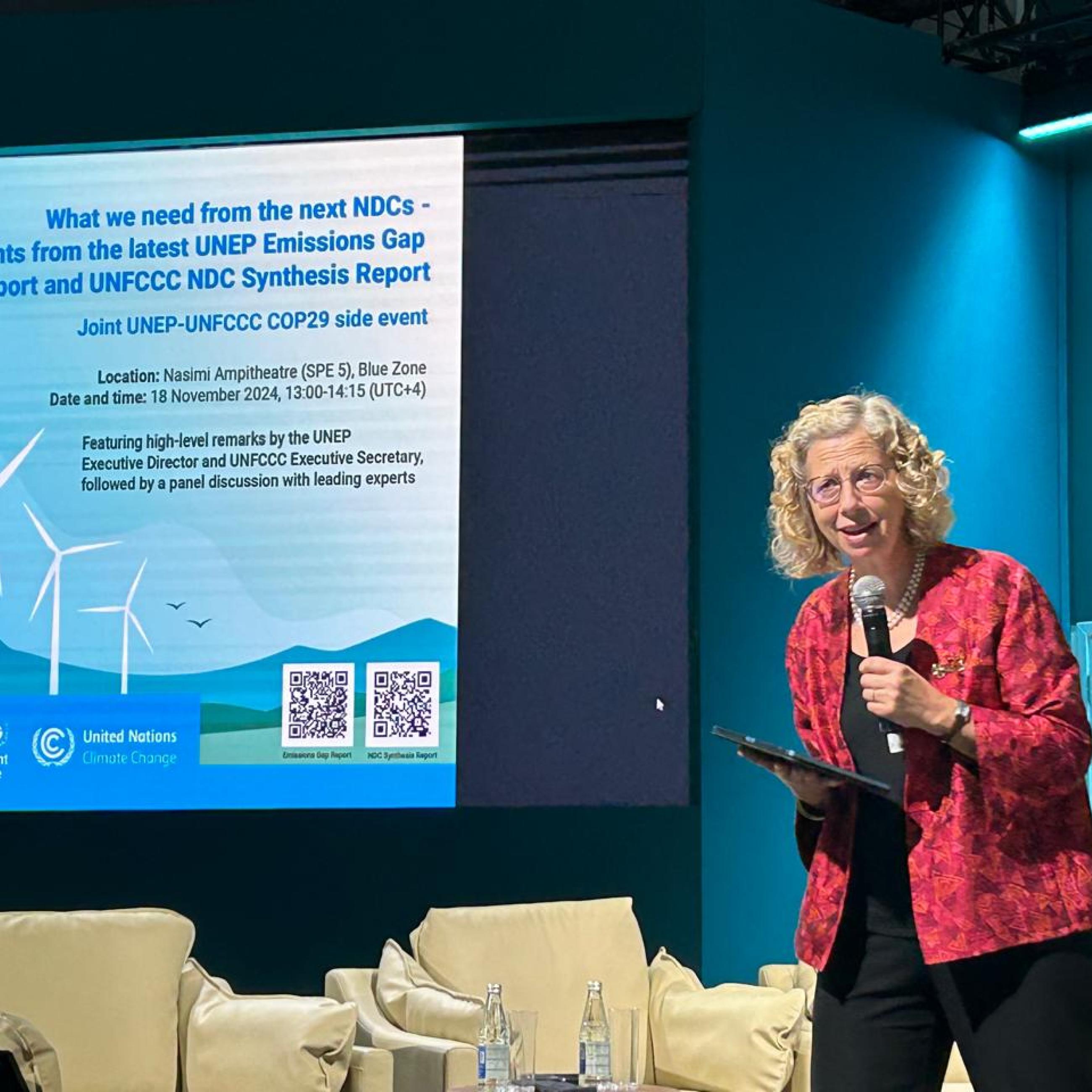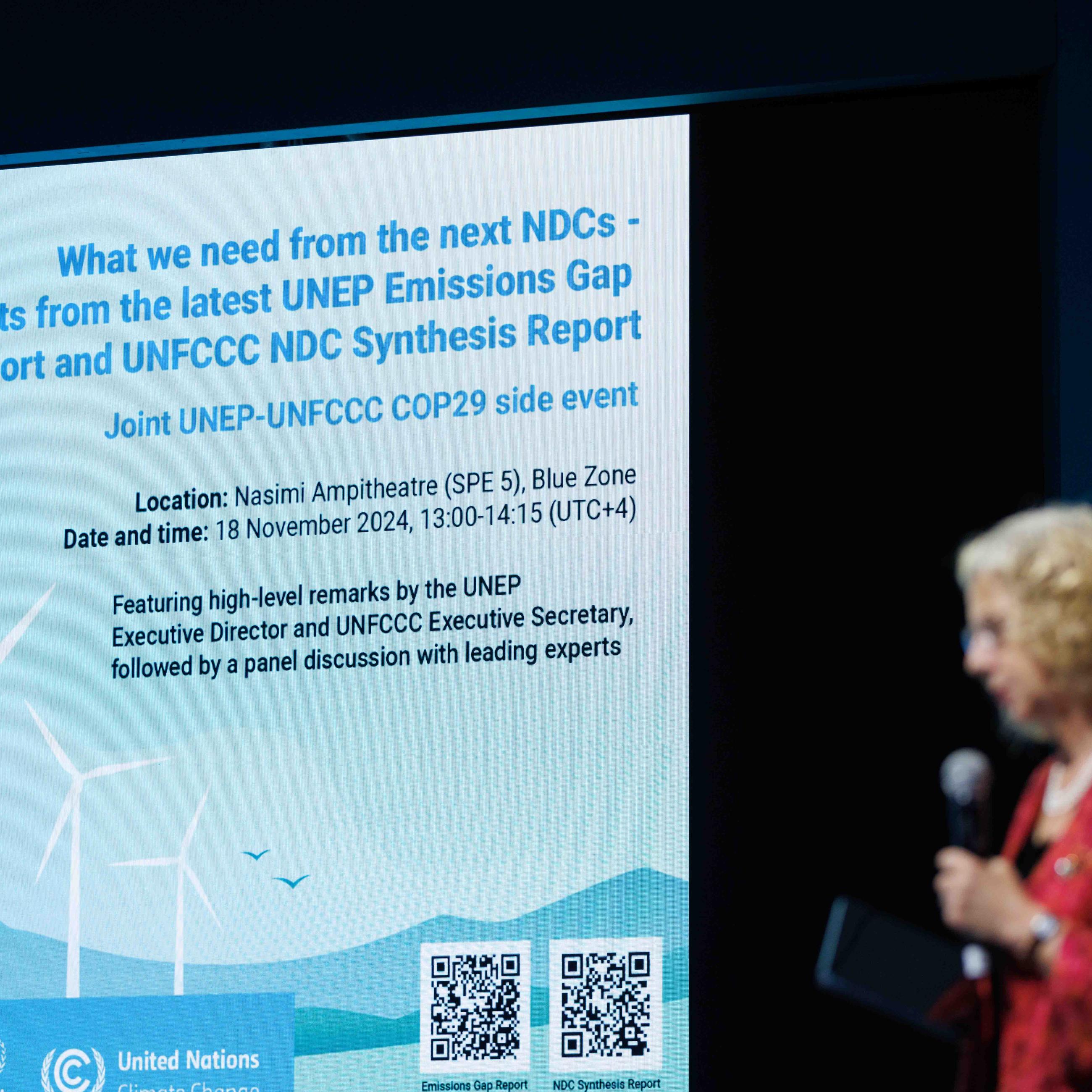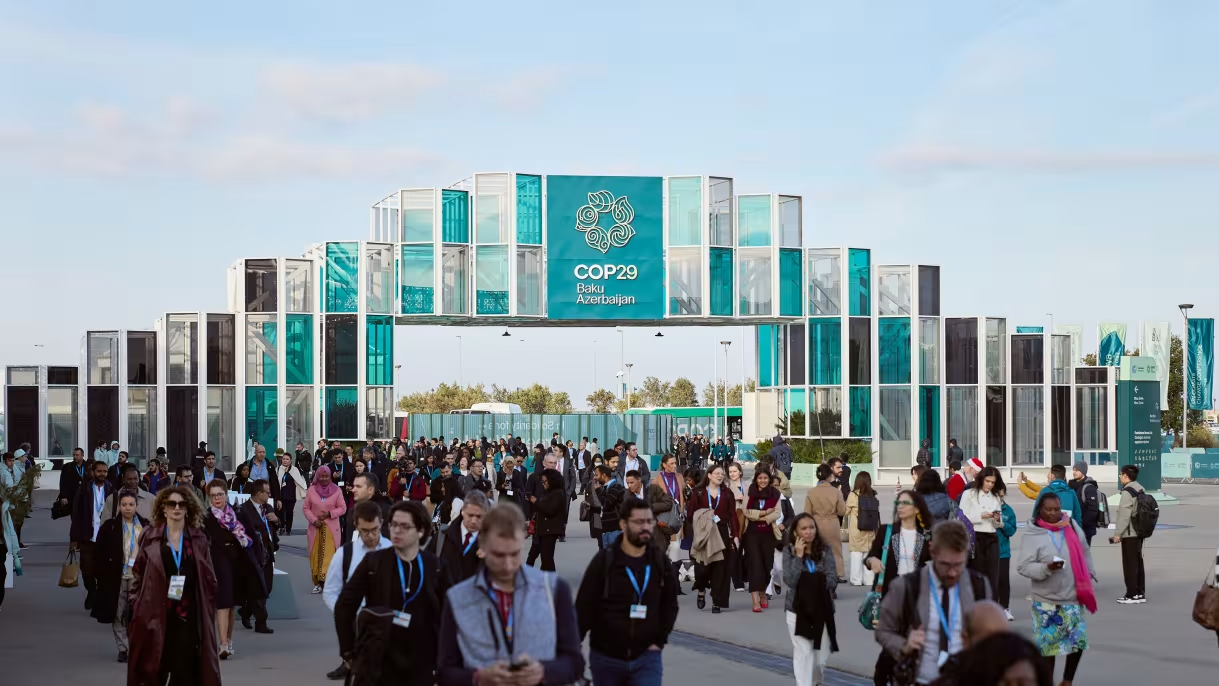

Princeton SPIA Students See Climate Policy Take Shape at COP29
Seven students from the Princeton School of Public and International Affairs attended the 2024 United Nations Climate Change Conference, known as COP29, in Baku, Azerbaijan, last month. The students met with delegations from around the world and saw firsthand how international policy is established.
Navroz Dubash, a professor of public and international affairs and the High Meadows Environmental Institute at Princeton University, also attended the conference and spoke on a panel hosted by the United Nations Environment Programme and the United Nations Framework Convention on Climate Change. It released the annual ‘Emissions Gap Report’ and focused on how to speed up climate action through the individual emissions reduction targets countries set, known as nationally determined contributions, or NDCs.
Dubash argued that credible commitments of finance are key to countries setting and achieving NDCs, particularly for developing countries with development priorities.
Ultimately, the conference resulted in wealthy countries, including the U.S., pledging to increase the financing of climate-change projects in the developing world to at least $300 billion a year by 2035, triple the current amount but far below the $1 trillion developing countries had hoped to see by 2030.
“The finance ‘non-deal’ occurs against the backdrop of the aspirational target of holding temperature to within 1.5 degrees of warming slipping away,” Dubash said. “The process is dangerously close to promising illusory money for an illusory global target.”
The conference was held up by “entrenched national political positions,” Dubash noted, acknowledging that some may question whether it is an effective way to address climate action. However, he said the COPs help shift national policies and set the stage for countries to consider more ambitious NDCs.
“Developing countries could usefully specify just how much it will cost to implement these actions, setting the stage for more detailed claims for financial support,” he said.
A teaching moment
For the students in attendance, the learnings began even before they touched down. Natalie Chung, a first-year Ph.D. candidate in science, technology, and environmental policy (STEP) at Princeton SPIA, sat next to the deputy head of the delegation from Lebanon. Through her, Chung learned about a training program for young people aspiring to be negotiators.
“The program empowers youth to negotiate for the least developed countries and areas most affected by climate change. It's a powerful tool to build capacity and include the younger generations’ voices in the climate agenda,” she said, sharing her experiences on a Zoom call broadcasted to faculty and students on the Princeton campus.Natalie Chung, first-year Ph.D. candidate in science, technology, and environmental policy (STEP)
During the call, which happened in the first of the conference’s two weeks, students shared how interesting it was to watch how negotiations unfolded. Amana Abdurrezak MPA ’25 expressed surprise at how difficult it was for countries to come to an agreement.
"An hour goes by so quickly, especially if one country decides to take the mic for a while and talk,” she said. “I’m both incredibly impressed that anything comes together and concerned about the future of critical decisions being made on implementation with parties' positions growing farther apart.”
Kathleen Song MPA ’ 27, a Scholars in the Nation's Service Initiative fellow, said attending COP strengthened her faith in multilateral organizations like the United Nations.
“There is genuinely so much passion, energy, and resources being put into this process by many different actors,” she said.
Witnessing the process, including “the often slow and plodding deliberations, the major breakthrough announcements, the gravity of the challenge, the frustrations at impasse,” is precisely why the School prioritizes sending students to global conferences such as this one, said Keely Swan, associate director of the Center for Policy Research on Energy and the Environment.
“The COP meetings truly are the biggest event of the year for anyone working on international climate change policy,” Swan said. “There is enormous value for our students to have these opportunities to engage with people working on these issues on the ground from around the world.”
We are accepting applications for our graduate programs through Dec. 15. Learn more and apply today.


